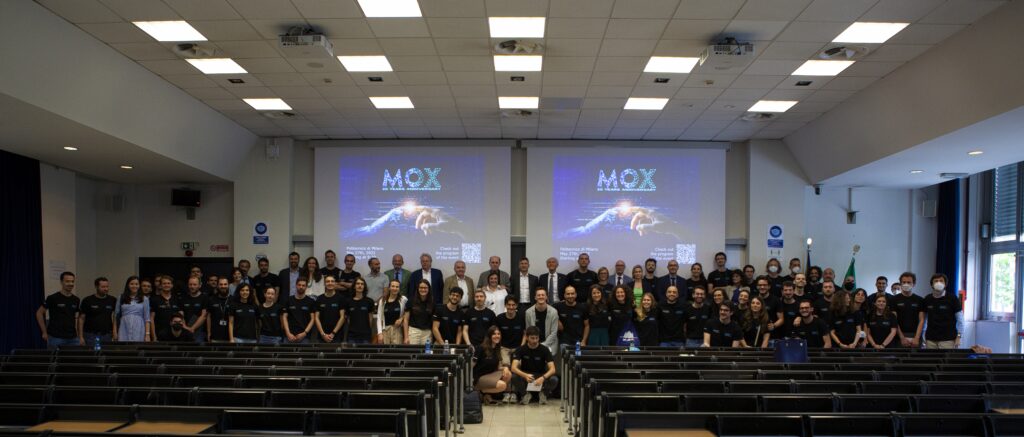
Perhaps not everyone at the Politecnico knows about MOX, the initials of the pioneering “Modeling and Scientific Computing” laboratory which was created by the Department of Mathematics in 2002 with the aim of promoting research in the field of mathematical modelling and scientific computing, collaborating with external partners on financed research projects and reinforcing cooperation with other research groups from the university. Directed by Professor Alfio Quarteroni, over the years it has evolved into a complex and dynamic organisation with a bustling exchange of high-quality staff applying data science models, modelling and machine learning to fields as diverse as healthcare, the environment, geophysics and industrial processes.
Upon reaching its 20th birthday, the laboratory decided to celebrate by bringing together personalities from the world of mathematics, partners, friends and collaborators. At the event we were lucky enough to chat with two mathematical geniuses: Jean-Pierre Bourguignon (IHES-France), who gave a lecture on “The Unity of Mathematics Confronted with the Diversity of its Interactions”; and Jan S. Hesthaven (EPFL-Switzerland), who spoke about “Trends in Reduced Order Modeling”.
INTERVIEW with Jean-Pierre Bourguignon
Where did your passion for mathematics come from?
When I was a student, before secondary school even, I was more interested in literature and philosophy than mathematics, even if I had good grades. That was the case until I had a teacher for my last year of secondary school; he was a brilliant mathematician but a terrible educator and suddenly I did not understand anything and that is where it became interesting. That was the turning point, I wanted to push myself to understand the things he was explaining and that is when I started studying on my own. It was a real breakthrough moment. I started to do further reading and by working on my own I had such a strategic advantage over the others that unexpectedly I came first in the public competition to study at the Grandes Écoles.
The real start of my career was at the École polytechnique where certain professors were so mediocre that in May ‘68 as students we arranged to replace the professors and do the lessons ourselves, deciding to lock ourselves inside the university for an entire weekend. Even the military understood that the situation was serious if students were giving up their nights out to protest against poor teaching. On the other hand, it was very educational because we organised ourselves independently: none of the professors helped us and in order to prepare our “pirate courses”, we read all the books that were available in the library; whether American, Russian, German and French. And it was at that time that I decided that I would devote myself to research. Thankfully, the mathematics programmes were excellent.
Then where did you continue your research?
Afterwards, my generation effectively had an advantage over those that followed; in France there was a period of expansion within research. I was employed by CNRS at 21 years old and started my career very young; I might be one of the longest-serving employees at CNRS. There was a great deal of flexibility, I was able to spend years abroad without losing my job, and more importantly, I managed to become a professor at the École polytechnique, working on secondments for 6 years before becoming director of the Institut des Hautes Études Scientifiques for 19 years, as well as spending a year in the United States, a year in Germany, 6 months in Japan, another year in the United States and so on. I even received offers to move to the United States but I refused each time: I preferred to stay in the French system because of the flexibility that it allowed me. I remained at the Institut des Hautes Études Scientifiques. It is a foundation and as its director I was responsible for finding international funding and donations that would not influence our research, which remained independent. We were able to do this internationally, finding money in the United States, China, Japan, but also in France.
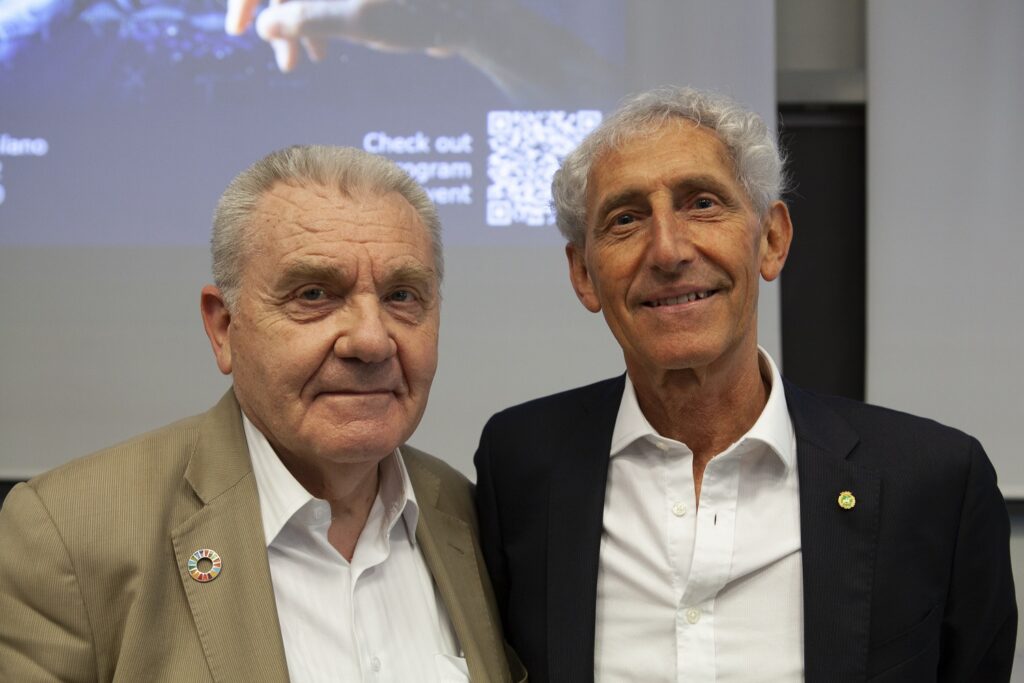
What is your field of research?
I work on differential geometry which is now called global analysis, at the meeting point between mathematics and theoretical physics. I am interested in general relativity and physics, but always from a mathematician’s point of view. I understand theoretical physics, but I am not a physicist, I am a mathematician and that is my field.
What was the most important moment of your career?
It is difficult to say because there have been many moments in my life. My greatest scientific achievement, which I worked on with the American mathematician Blaine Lawson, is when we solved a conjecture in late 1978 that theoretical physicists had been working on for a long time. It is a study proving that stable solutions for Yang-Mills equations for the S4 sphere are that which we call self-dual solutions or anti-self-duals; this is the mathematical statement. The first time is always very beautiful and satisfying.
Another important moment was when we did the first round of fund-raising for the institute. We had set ourselves the target of finding 3 million euros and we found 5! Great, right? But it was a long process of teamwork which took 3 or 4 years. And then another thing that I had not expected to happen was becoming the president of the European Research Council, after having been director of the Institut des Hautes Études Scientifiques. I was in Brussels for 6 years and then even after finishing my term I was asked to return; they needed someone who had political and budget management expertise. Those were very intense times; you need to understand how to mediate between the best scientists in Europe.
What do you think about research doctorates?
First of all, if you want to go down the route of a doctorate, you should do so out of passion rather than obligation. Then, it depends a bit on personal choice and the opportunities available. If I think back to my experience, I finished my doctoral thesis in 1964 at 27 years old, but I had already published many articles and the thesis was just a reinforcement of that. Until the beginning of the ‘90s in France, when you were doing a doctoral thesis in mathematics, it meant that there was an 80-90% chance you would stay in academia. Nowadays, this is no longer the case: around half of people now go into companies or start their own businesses afterwards.
The situation also varies from one country to another, where it can be easier or harder; I am talking about mathematicians looking for work in companies of a certain level. From this point of view, France is slightly behind other countries. I have seen how in Germany for example, whatever your formal education in mathematics is, people can go into industry as industrialists often love mathematicians, because they have training and a maturity that helps them to solve problems and they are people that know how to work in a team. I think that the situation has really changed a lot and among the things that we heard this morning, it transpired that all countries have made the effort to evaluate the impact of mathematics on economic development. I thought the figures were astonishing: 30% of the economy in Great Britain and the Netherlands is based on recent mathematics.
Anyone who thinks mathematics is of no use is seriously mistaken; a large part of the economy is based on mathematical expertise. All companies say they want to add to their staff with professionals that have advanced skills in mathematics who can contribute to considerable growth, even if mathematics is not the companies’ specific sector: companies that work on artificial intelligence, data processing, chemical companies; they all want a significant percentage of their engineers to be people with advanced mathematical expertise.
So, coming back to the doctorate, I believe that people with a high level of mathematical ability will be remarkably sought-after. In any case, as you can imagine, the salaries offered by companies to qualified candidates are not the same as those offered by the academic world. And so, the concern is that there will lack of academic mathematicians in the next generation because too many will have chosen, for good reason, to join companies. Not only will they be paid more, but they will have interesting problems to tackle.
It is a really critical and worrying subject for the scientific community and for the mathematics community in particular, above all because many companies have understood that they need to undergo extremely rapid transitions in order to tackle the challenges of the environment and the challenge of digitalisation. Naturally, they will shape their workforce in order to best adapt to these needs and they will need to employ highly skilled people very quickly. So, perhaps they will not wait for a doctorate, but will employ people with a masters. If you have a masters and you are offered a salary which is three times higher than what you would have at university…you will choose to leave straight away because you will not be going to do just any job, but an interesting job.
And in Italy?
In Italy there is the big issue of young people leaving, even before finishing their doctorate. 15% do their doctorate abroad and this percentage is the highest of all European countries, and they certainly are not the worst students who are leaving; on the contrary. The next country on the list is Hungary with 8%, while France is at 3%: it is a problem that needs to be addressed. It also means that young Italians want to go and see what is happening elsewhere, which in itself is a positive thing. The real challenge is getting them to come back. If people return afterwards, training elsewhere is always an added bonus, but you have to attract them with better earnings.
You have had an important role in the development of mathematics across Europe. Not only as director of a prestigious institute such as IHES, but also as the first president of the European Mathematical Society and as president of the European Research Council (ERC). How do you see the state of European research in mathematics or its funding compared to the United States, for example? What do you believe the future prospects are?
It is not so much the United States that worry me but rather the Asian countries: China, Korea, Japan and Singapore where things are really happening. China has just increased its support for research by 7% per year. And if we look at the most cited articles, those that have most influence, China was at 2% in 2000 and it has climbed to 21% in 2020, so not only have they invested in monetary terms, but they have improved the quality of their research unbelievably well and very quickly. Last week, I held a purely mathematics conference and when I went to read the latest articles published, 2/3 of those that I read were written by Chinese authors! And of course, by young Chinese authors.
This is where the competition stands; the same goes for Korea. I am on the Scientific Council for a Korean institute called IBS (Institute for Basic Science) which was created as a challenge by the Korean government because Korea did not have a tradition of research, so they invested approximately $10 billion in the institute over 10 years. Now that these 10 years have passed, they have attracted excellent researchers from across the world and the management is very professional.
Japan is navigating a population with the resulting budget cuts that accompany it and weaken the country, but it has nevertheless returned to growth. They are ready to invest figures as high as 100 million euros which for us would be unimaginable. And this is where Europe is not doing the right thing, there are too many countries that are not investing enough in research and this is a strategic error for future generations, even if at the end of my lesson this morning, two students came to tell me specifically that it makes sense to do a doctorate and to try to remain in the academic world.
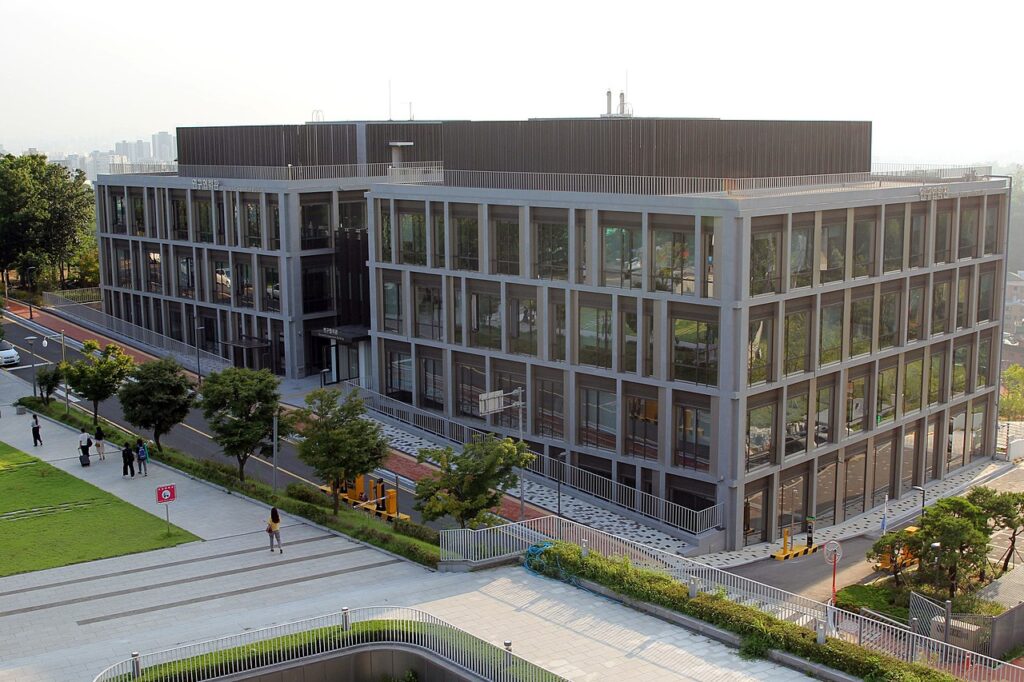
INTERVIEW with Jan S. Hesthaven
How did you begin your career? Why did you choose mathematics?
I studied in Denmark at the Technical University (the DTU Technical University of Denmark) which is very much like the Politecnico di Milano. I did not plan to study mathematics but mathematics was always very easy for me. When I was a student, I had an internship in the United Kingdom in a research laboratory which I found interesting and inspiring, and when I came back, I thought that I had found what I liked and so I continued.
What was it that you liked?
I liked analysis and understanding how to build computational models of the world; I liked that and I was good at it. It became a hobby. It was not a job for me. After I finished my studies, at that point it was natural to do a PhD and then follow that track. So, I have never done anything else. I have followed my passion.
What are the areas of your research?
After I finished my studies, I moved to the United States and I was at Brown University for 18 years (in Providence, Rhode Island ed.). I was in a group which was focused on building good models in collaboration with industry or with defence and so I worked a lot on understanding radar applications for aircraft, for instance, and on the modelling of black holes, on what happens when they collide. This was before the gravitational waves were discovered. Generally, I work with people, I do not work alone, with people that have interesting problems to solve. And then I use my skill set to help them answer the questions. And then when that is over, I do something else. So, I have a particular skill set that I apply; I have worked with physicists, chemists, economists, engineers. My area of expertise is developing computational models and making sure that when you use them, they actually tell you something useful.
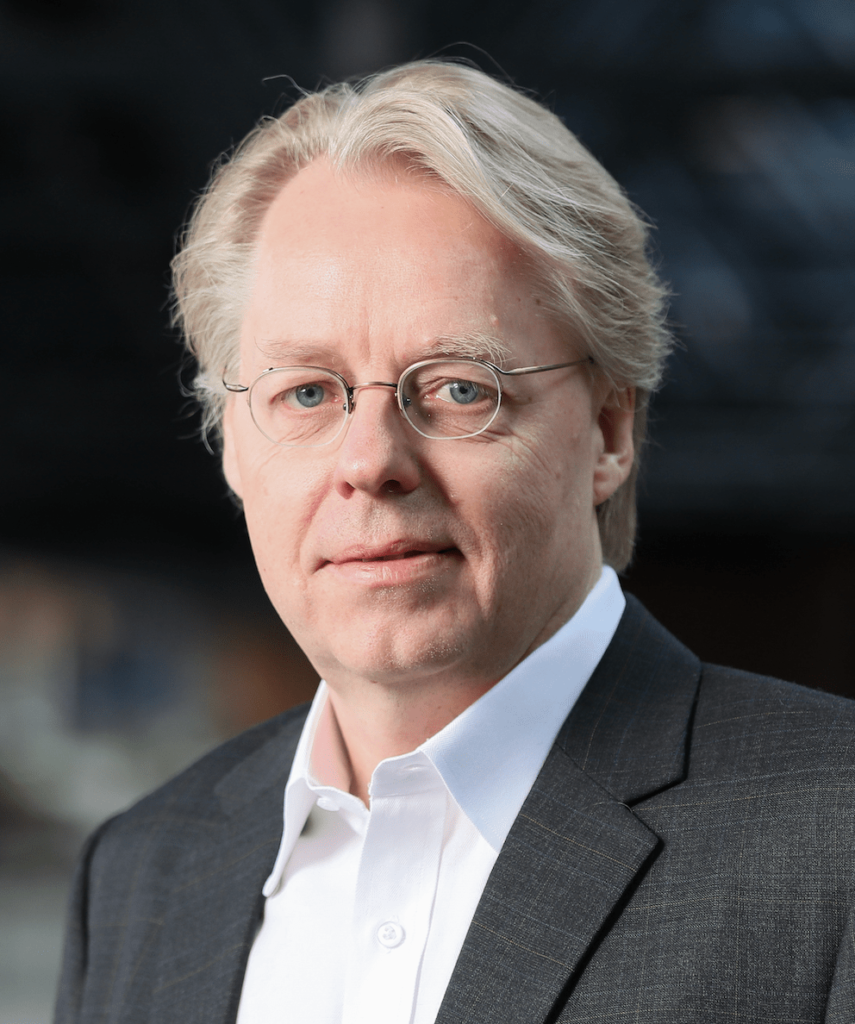
Do you remember a special moment or any special moments in your career?
As in any career as a researcher, I think that there are a number of situations when you say “Eureka!” For example, when I was a student and I was working on my masters thesis and I had that first experience where you say “okay…now, right now I know something that nobody else knows.” Which is very inspiring and I think this is sort of what drives many of us; when you are working on a very difficult problem and at some point in time it suddenly solves itself in front of your eyes and you realise “I did it!” That experience does not happen too often, it is a process over a very long time but I have worked on problems for years where suddenly it opens up.
Could you give us an example?
Maybe the easiest example is the one I did as a student when I studied certain phenomena in the atmosphere. Sometimes, even in Europe, we get a weather system which is very, very stable for a very long time. And it happens because there are structures in the atmosphere that are very, very stable and it was not clear why that is, and this was the topic of my Master’s thesis, to explain why this phenomenon occurs.
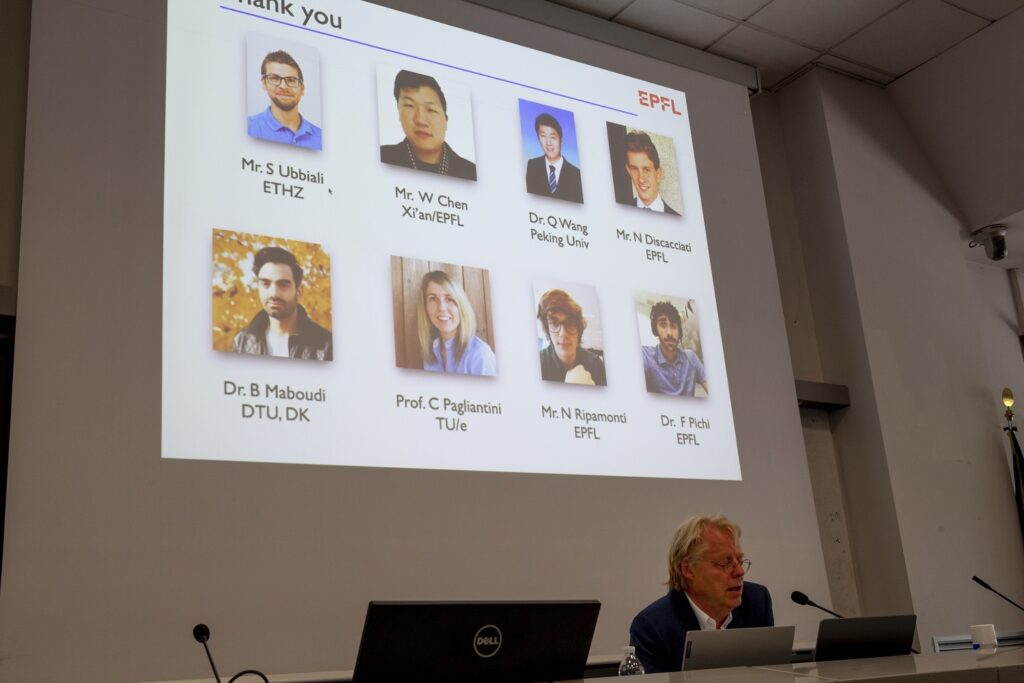
In your opinion, does a research doctorate (especially in “hard sciences” such as mathematics) represent the third level of education or the first step in research? And most importantly, is it the right choice only for those that want to stay in academia or is it an enriching choice for everyone?
I think it is more than an enriching choice. Mathematics, to me, is a way of thinking. It is how you think about a problem, how you formulate it, how your mind is. You are trained to be very disciplined on the problem that you are trying to solve, and this is a skill set which is useful well beyond academia.
When I used to teach mathematics in the first year, and it is very rigorous mathematics for the non-mathematicians, the students would come to me and ask: “Why do I have to learn this if I am never going to use it?” And my answer to them was always that, first of all, maths is a way of thinking which is very logical, and, at the same time, maths is about knowing when you know. Maths has something that no other science has: the proof. Which is something very special and training yourself in that mindset is very valuable, even if later in life you walk away from the proof as most of us do, myself included, because the world outside the windows is too complicated. But it does not mean that you should not use this skill set once you acquire it as a mathematician, as a doctoral student. It is very valuable, and I think industry agrees.
Industry needs PhD students, obviously in the financial sector, insurance, high tech industry, engineering and so on. They need these people who can think abstractly in order to go to the next level and not get stuck in the traditional way of doing things. So, I always tell my students that it is not important what problem you solve as a PhD student: it is not about resolving a problem, it is about knowing how to solve problems. And that is the key, and that is of course something that you can take with you. So, you do this by working deeply on a small number of problems and hopefully at the end of your PhD, you realise that you have done something that nobody has done before. And that process is very difficult for some, they get very frustrated because it is difficult, but when they come out on the other end, they have the confidence of knowing they can do it, because they have trained, and they can solve other problems.
In addition to being a world-renowned scientist, you are the vice president of EPFL. The Politecnico has a double masters agreement with EPFL in the field of Computational Science and Engineering. How do you assess the preparation of Politecnico students at who came to Lausanne for this study programme?
Well, I think the best testimonial perhaps is that the majority of my doctoral students are from that programme, so they are very good and highly sought-after
What advice would you give to students? Is it better to go abroad or to come back?
I left Denmark in ‘95 and I have not returned there permanently since, so I think being abroad is extremely enriching. Also, science, mathematics is international, you can do it everywhere and anywhere. It is a universal language. It is basically a language which we train. We train for many years to learn this language because it allows us to discuss what it is that we mean in a very specific way and it is global. We are all in agreement that this is the language, so you can go anywhere and it is the same language. In terms of going abroad, I think that anyone should have that experience even if it may not be for everyone to live overseas for many years.
I did not plan to live in Denmark. I went to the United States to do a post-doc and I stayed there for 18 years and then I moved to Switzerland… Life happens, but I think that everyone should try, and if you do aspire to an academic career, you have to be willing to travel and I understand this can be difficult for many. You have to be willing to travel, to be in other environments, with other people, but it is an opportunity which allows you to maintain your independence. Universities celebrate the individual, not the group. I am not sure this is good, but this is how it is, and therefore you have to be able to prove that you can distinguish yourself in different environments and then of course you get different stimuli and there is something enriching about that.
